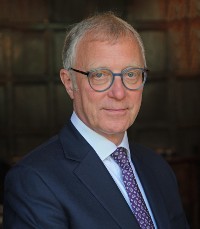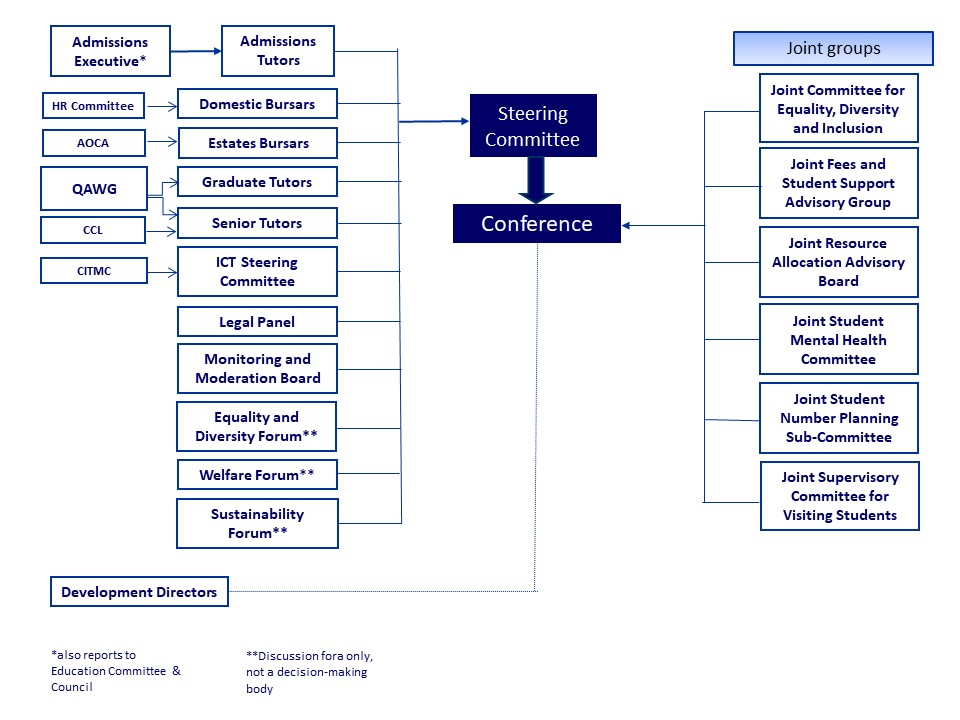What is the Conference of Colleges?
The Conference is an association for the Oxford Colleges.
The Conference has two main functions. It enables the Colleges, as self-governing
and financially independent institutions, to act collectively on issues
that matter to them. This may range from sharing information and good practice
to acting together to procure expert advice or services.
The Conference also acts as a voice for college interests within
the University community. It enables Colleges to debate and act upon
the key issues of the day. Shared views and policies are developed, and
decisions are made. This enables a collective college perspective to be
communicated widely and to influence University decision-making.
Meet the Colleges
Welcome from the Chair of Conference

Rt Hon Sir Ernest Ryder
Master, Pembroke
College
In the twenty-first century, Oxford's greatest strength is still the fact
that we are a collegiate university. Our 39 colleges and 4 private permanent
halls are vibrant academic centres situated in a world-leading university,
which nonetheless provide something unique: a caring and inclusive scholarly
community.
Each college and hall has its own individual history and character. Some
colleges trace their origins as far back as the 13th Century, while others
draw from much more modern foundations. They vary in their architecture,
in their traditions, and in the range of subjects they offer. One thing
they all share, however, is a common belief in the importance of welcoming
all students to Oxford who have passion for their subjects and intellectual
curiosity, whatever their background or country of origin, and enabling
them to flourish.
To make that happen, we have a responsibility to ensure that the opportunity
of an Oxford education is truly open to those who have historically been
under-represented here. That means making sure the University which new
students find waiting for them is not only a world-leading centre of academic
thought and research, but an open and supportive community, too: one that
celebrates diversity, promotes resilience and free thinking, and champions
the potential of its students.
The Conference of Colleges provides a forum in which to fulfil this and
many other shared priorities. We are an association, without any legal
status in itself, that provides a valuable means of sharing experience
and expertise across our different college communities. As independently
governed institutions, Oxford’s Colleges and Halls face similar challenges
as we engage with our students, with each other and the non-collegiate
University, and with the wonderful city and local communities of Oxford,
with whom we are so interdependent. We all benefit greatly from these collaborations
- more so with each passing year.
By coming together, we are able to share expertise and find joint solutions
to the challenges we face for the benefit of all.
I hope very much that you find the information on these webpages useful,
and that colleagues, students, prospective students and members of the
public will find us a gateway both into the colleges and the wider university
of Oxford. At a personal level, both I, and my colleagues, are available
should you have any issue, concern or suggestion you would like to make
to us.
Rt Hon Sir Ernest Ryder
Master of Pembroke College, Chair of Conference of Colleges






